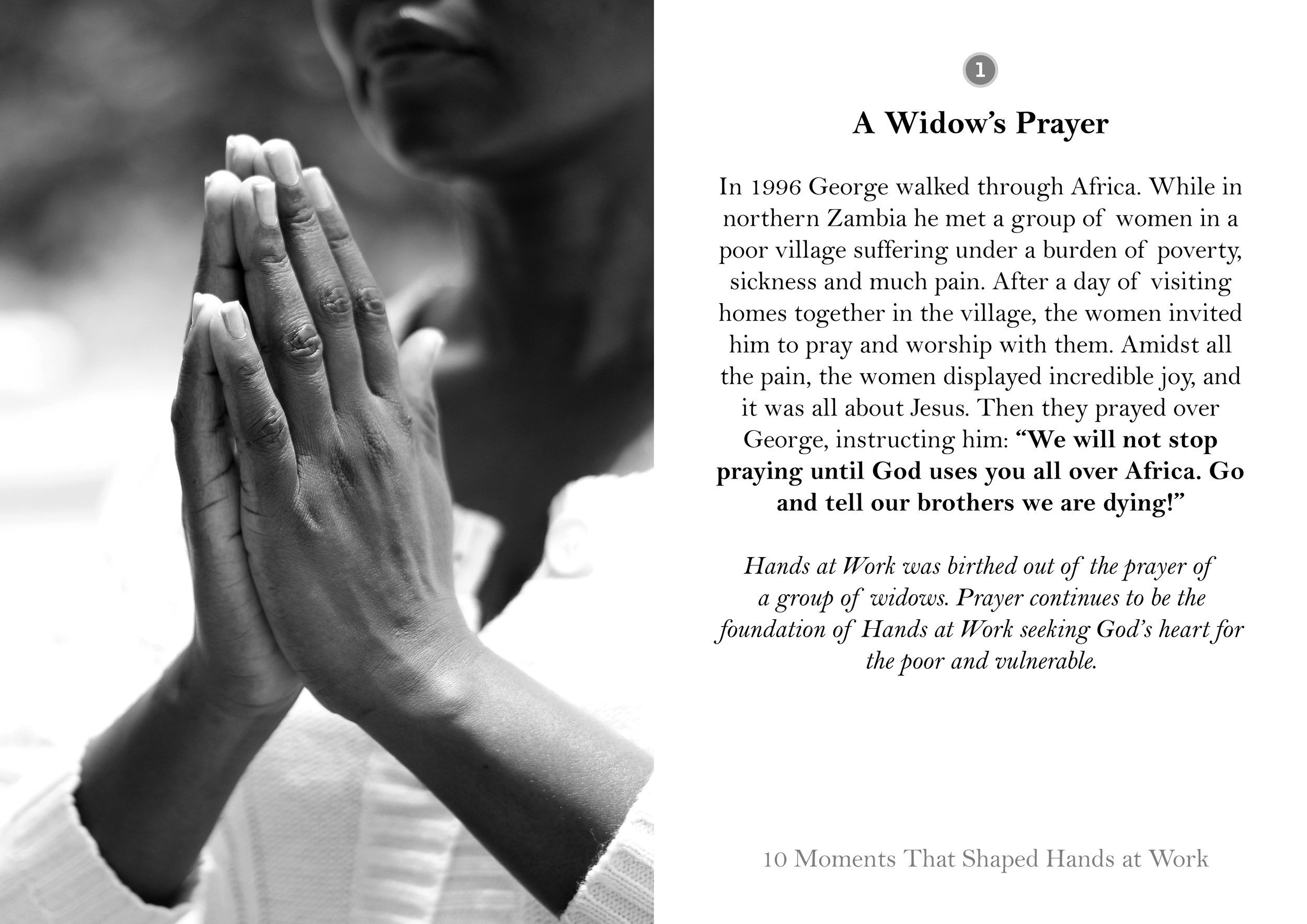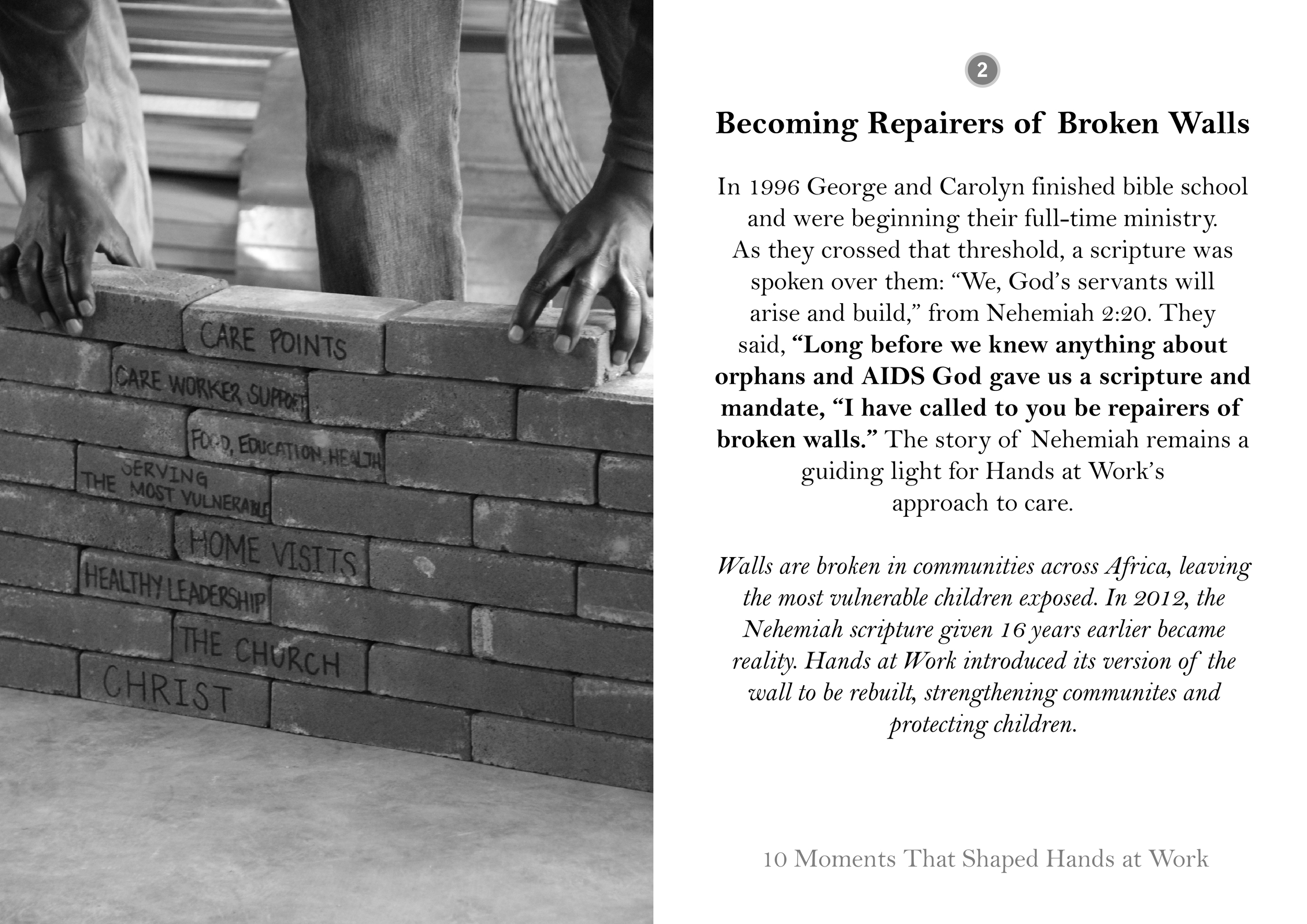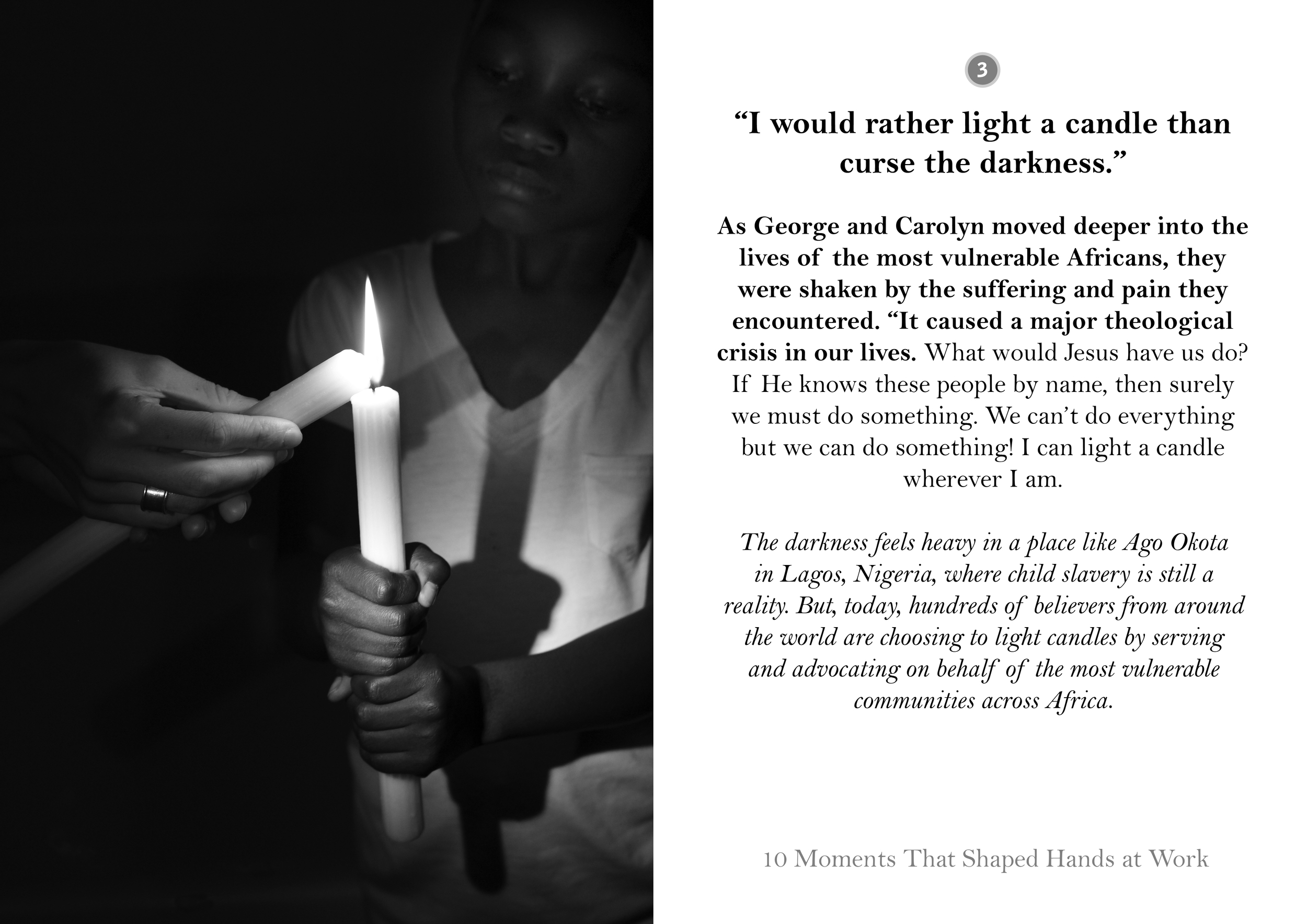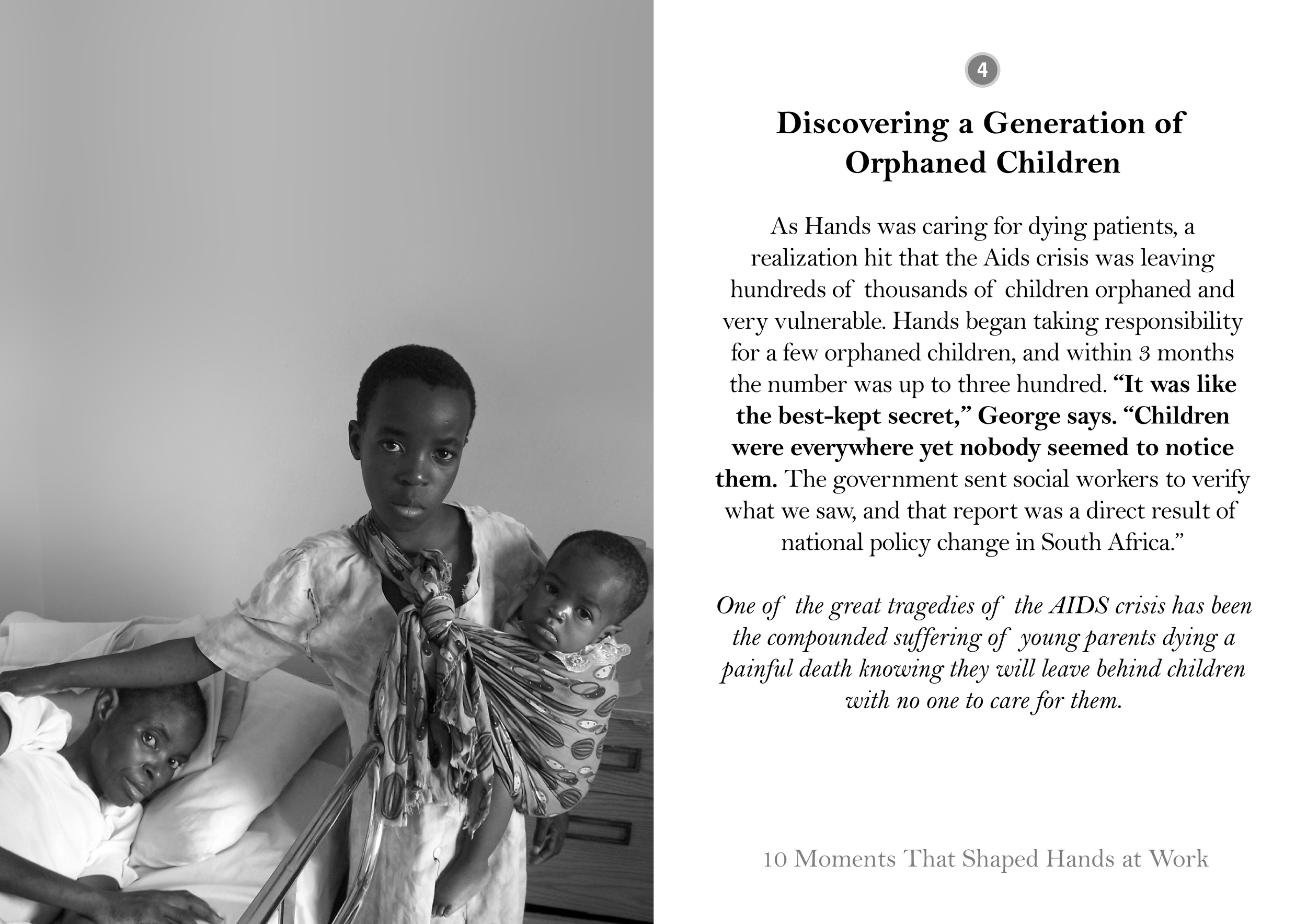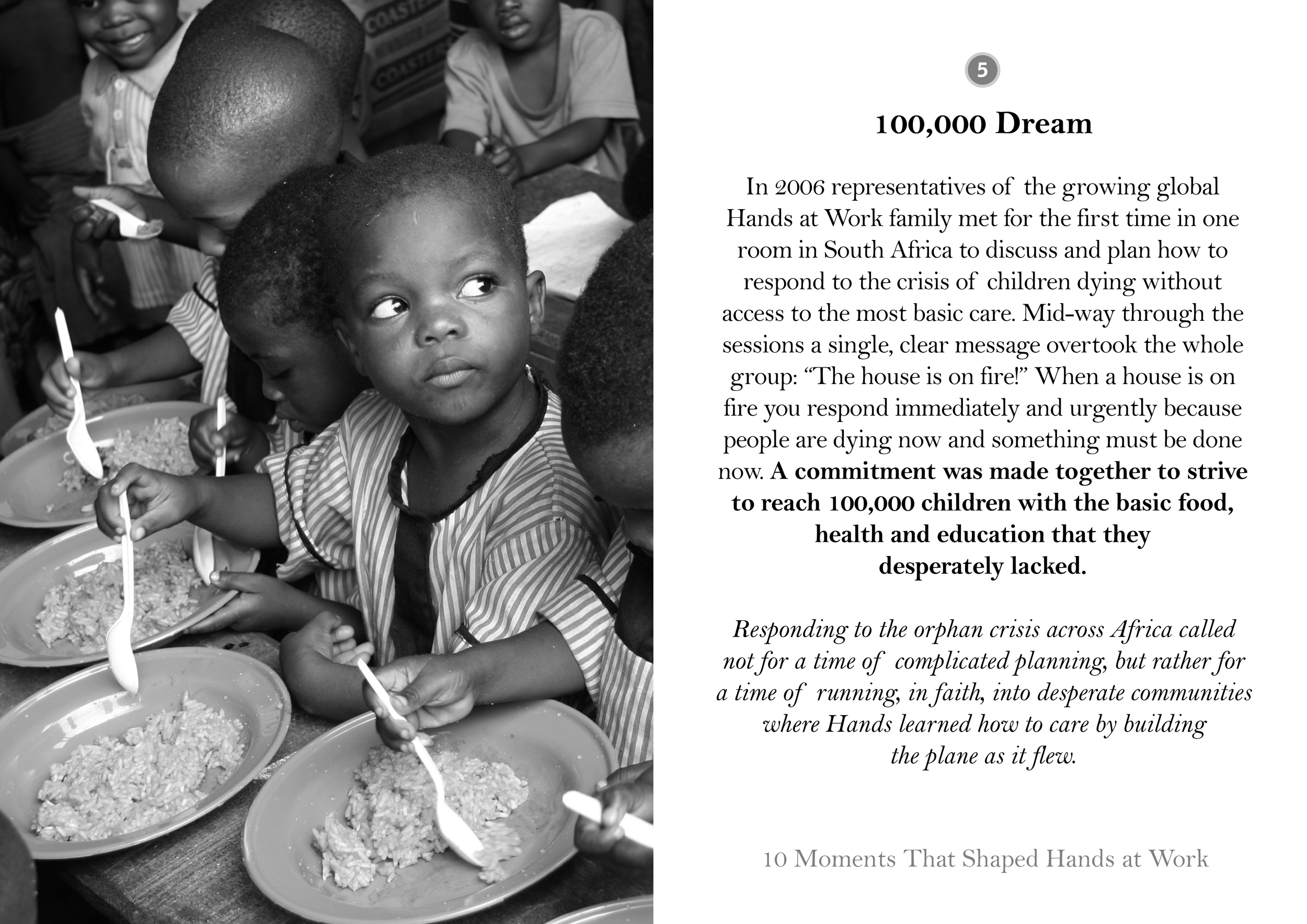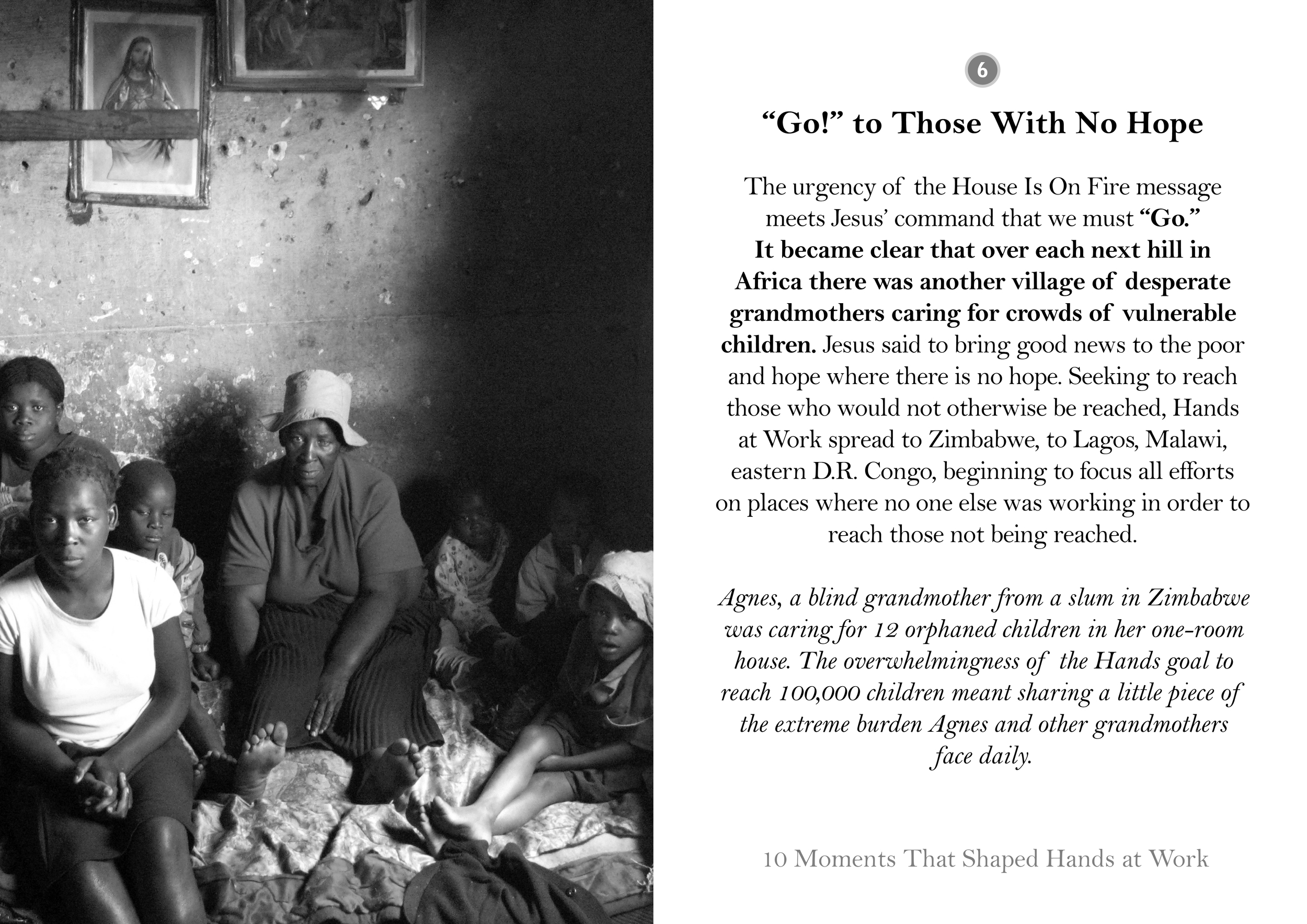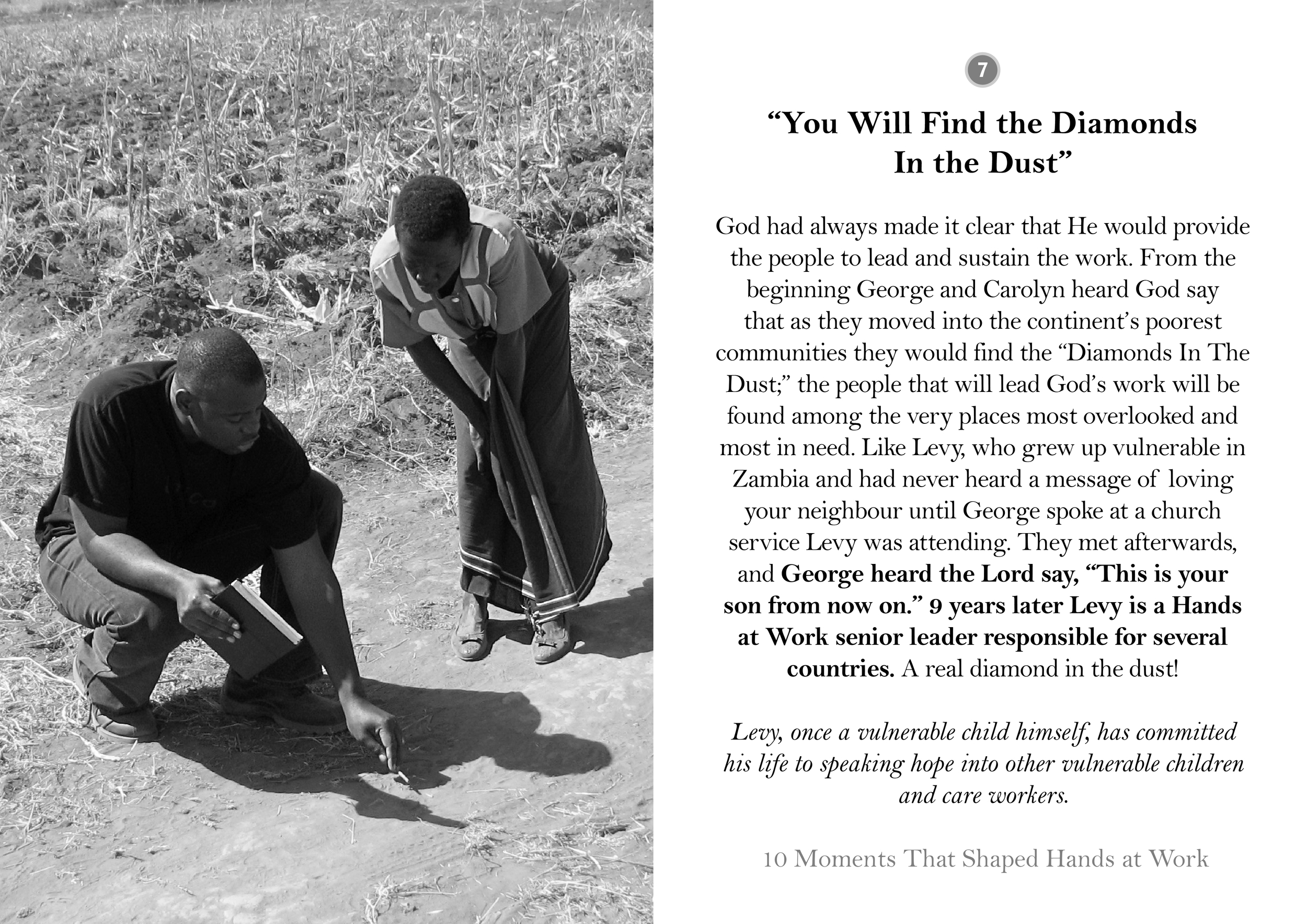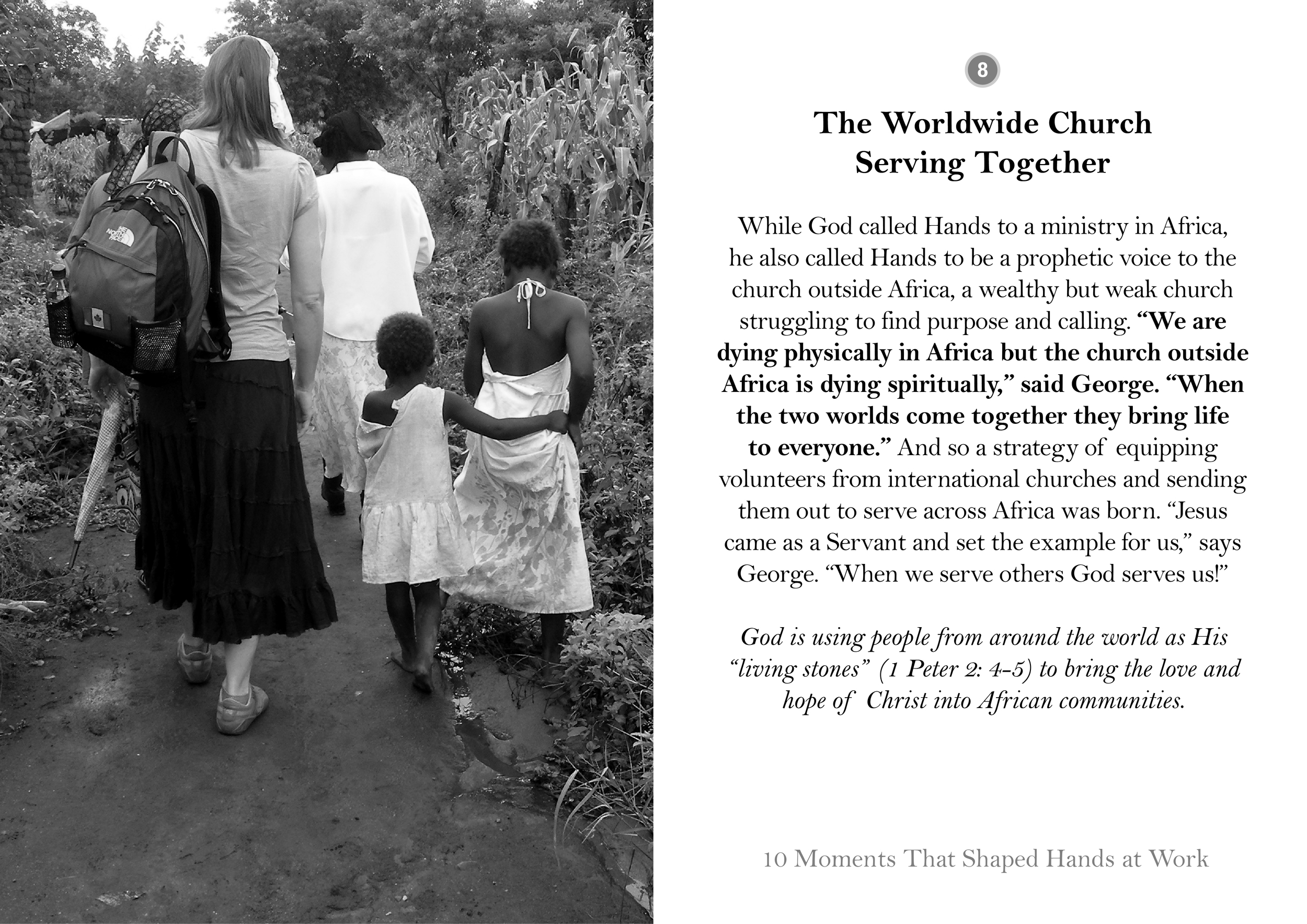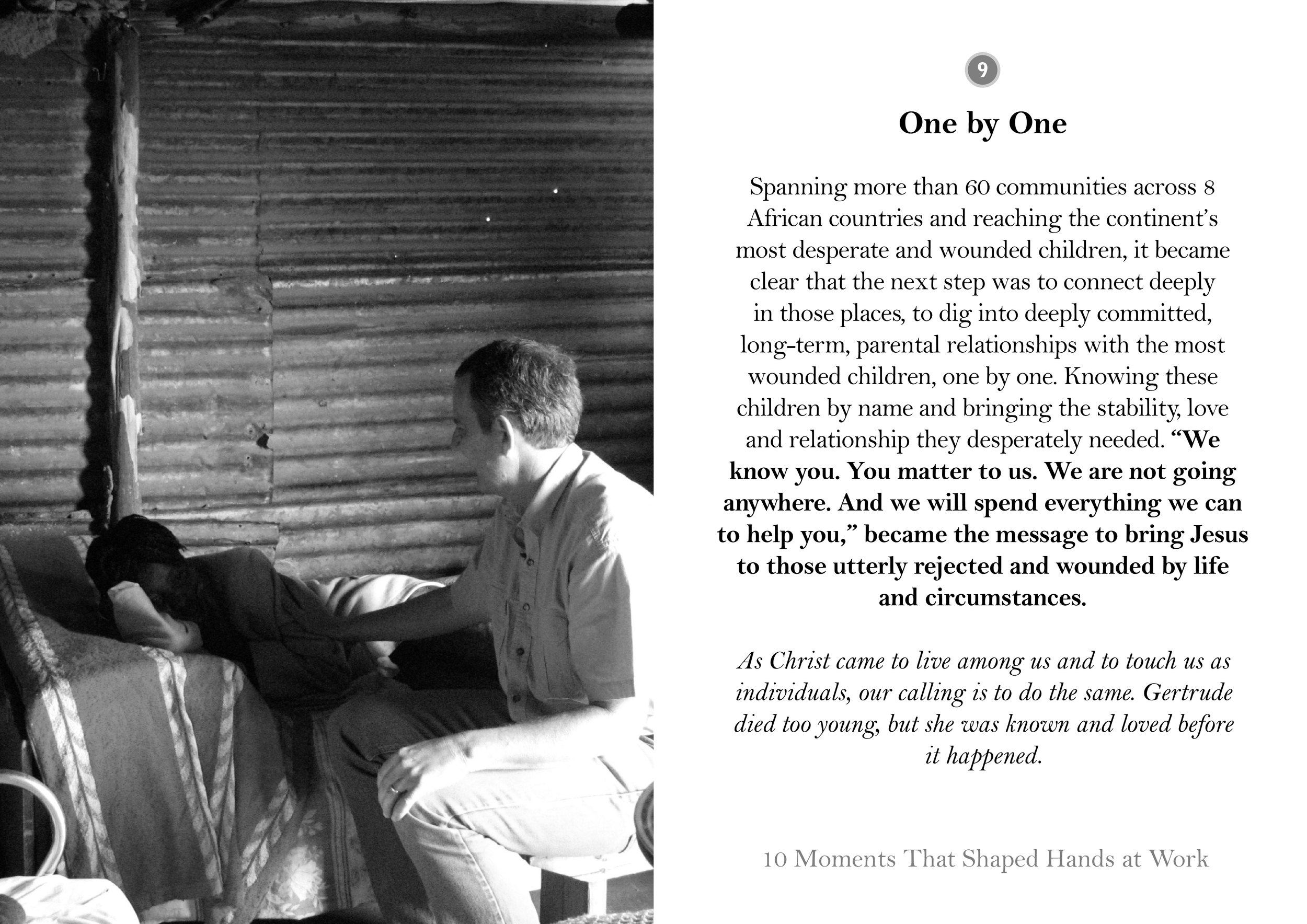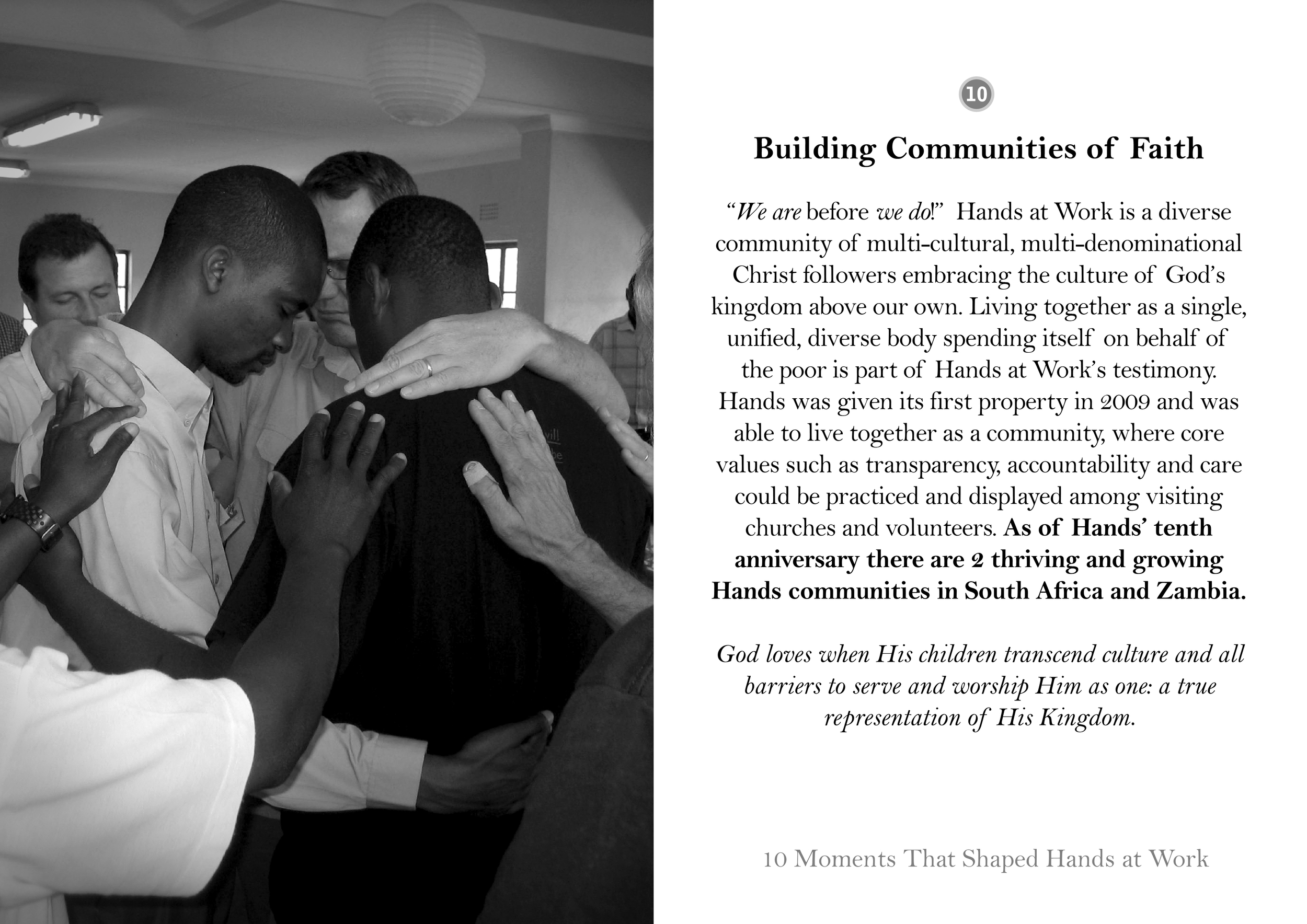our story
“It all started when two simple, white, middle-class South Africans found freedom in powerful servanthood and unconditional love.”
George & Carolyn Snyman, founders of Hands at Work in Africa
As is often the case when God is at work, Hands at Work started in the most unexpected and unassuming way. George and Carolyn Snyman were a seemingly ordinary, white, middle-class couple who started their young married life in a leafy suburb of Pretoria, South Africa’s capital, at the height of the Apartheid era. “We just wanted to live a ‘normal’ life,” George says. George worked in the rapidly evolving IT industry and Carolyn in the finance sector. When they became parents, Carolyn decided to stay at home with the children. Steering clear of political involvement or racial intolerance, they went about life quietly.
Then, quite suddenly, George radically met Christ. The Snymans had been nominal Christians and attended church most Sundays. “I grew up a ‘Christian’,” George says, “but this time I met Jesus face to face!” He wasn’t seeking Christ, but when He burst into George’s life he was completely transformed. Shortly after his encounter with Christ, Carolyn also surrendered her life to Jesus. “Everything changed in our lives,” George remembers. “The way we viewed money, our friends, our time. Everything changed!” Carolyn testifies to George’s metamorphosis: “He couldn’t drive past people standing on the side of the road. He would often bring all sorts of people off the streets home with him. People he’d passed on his way home from work.” Their friends thought they had gone crazy, but they simply did as they had read in the Bible.
At around this time George met a black pastor named Hezekiah from Hillbrow, the inner city of Johannesburg. Together they visited black townships on weekends. George was exposed to a great deal of suffering amongst the poor. Faced with this reality, George and Carolyn started grappling with what it meant to be a Christian in an affluent, white suburb whilst, simultaneously, so much hardship was unfolding in South Africa’s marginalised townships. “Carolyn and I would go to the [white] church where we got saved and we’d love it there, but when I tried to talk to the people about what I had seen, it was as if they could not understand it,” he recalls.
As the Snyman’s conviction grew, so did their unsettledness. They soon realised that the trajectory of their privileged lives could never accommodate a response to the poor and destitute. “We realised that everything that seemed to give us security, were the very things that kept us away from dealing with the poverty,” George says.
Reaching a tipping point after a few years, George and Carolyn decided to give up their comfortable existence. They sold their home, packed their belongings into their car and, with a mere US $20 per month to support their family of five, they made the four-hour journey to the Africa School of Missions on the outskirts of White River. “It was fun and liberating to just give all of our stuff away to whomever wanted it!” Carolyn says.
Three years later, during his final year as student of theology and development, George decided to walk through Africa. Using the most basic local transport and often traveling on foot, through Southern Africa: South Africa, Zimbabwe, Mozambique, Malawi and Zambia. Staying in impoverished villages he was faced, for the first time, with the seemingly hidden suffering of communities that were being devastated by the HIV/AIDS pandemic. Worse, even, than the suffering he’d known in Johannesburg. George started wrestling with what the Church’s response to poverty and suffering should be. “I remember sitting in a local taxi in Zambia watching a young, very sick woman holding a baby who was just skin and bone,” George recalls. “And I thought, who would help them? Where is Christ in this situation? Does He care? Does He want me to do something? My heart was crushed by what I saw and I came home sick, broke and disillusioned. I didn’t know what to do.”
Once they’d completed their studies, the family traveled to the province of Kwa-Zulu Natal, infamous for its high rates of HIV/AIDS and violence. They started serving, simply, by feeding children who were scavenging for food on rubbish dumps. “And that’s how we started out,” he says. “Wherever we went we found people, mainly young people in their twenties, dying in their huts. We did not understand what was happening and it took some time before we learned more about AIDS. Nobody spoke about it, especially not the Church. Everyone just continued with life while thousands of people were dying.”
“I learned the names of the people dying and it became personal to me. They told me their stories and fears. All I could do was cry with them and pray for them. Of course, I also buried them all. There was a time when we had no money and I buried people in blankets”
An elderly Zulu woman named Glory discipled George during these years and she taught him that following Christ meant being a servant. She also taught him that a relationship is the foundation on which to build the Kingdom of God. Both these lessons became part of the core values at Hands at Work years later. “I learned the names of the people dying and it became personal to me,” George says. “They told me their stories and fears. All I could do was cry with them and pray for them. Of course, I also buried them all. There was a time when we had no money and I buried people in blankets [instead of coffins].”
When they had been living in Natal for a few years, they were invited to head up the first home-based care organisation in Masoyi community. Knowing nothing about home-based care, this adventurous pair again rolled up their sleeves and went about caring for people: bathing, praying for and preparing meals for them. Soon after Masoyi Home-Based Care had been birthed, USAID – whilst conducting its rapid appraisal in Southern Africa – deemed the organisation a best-practice model earning their efforts generous media coverage.
George and Carolyn soon realised that the project and its success would become another idol and so, again, felt the nudge to move on from Masoyi Home-Based Care. “We had to let it go,” he says. Instead of creating one large organisation limited to the northeastern corner of South Africa, the Snymans decided to replicate the model across Southern Africa.
As medical research provided better medication for people with AIDS to stay alive, George and Carolyn started to focus more on orphan care. “They are a lost generation, growing with 180 000 new orphans each month. It’s clear and undeniable: the Bible clearly states that these orphans should be cared for by Christians,” George says. “We are convinced that the Church is the only answer to this pandemic.”
As Hands at Work was birthed, local and international volunteers joined George and Carolyn in their venture and George recognised that the same paradigm shift he had experienced, was playing out in the volunteers’ lives. It became an unwavering principle of the Hands at Work motto: that it exists not only to help the Church in Africa respond to the Biblical mandate to look after the poor, but that the Hands family would be a prophetic voice, stirring the Church across the world to consider their lifestyles. “I saw so many lives changing as Christians from outside Africa came to serve, and in doing that they discovered Christ more deeply than they'd ever known. In fact, many found Christ for the first time in Africa,” George says. “It was never the government’s responsibility to care for the orphan and the widow, but Christians’.”
“We are before we do.”
“We have a saying at Hands,” George adds. “We say we are before we do.” At Hands at Work a dream is being realised: that of a truly multi-cultural community where individual preferences have been laid down at the door and a Kingdom culture has, instead, been adopted. A culture of servanthood. Together this community now works towards a common goal, to see 100,000 children in sub-Saharan Africa, children who would otherwise have no hope, cared for. And it all started when two simple, white, middle-class South Africans found freedom in powerful servanthood and unconditional love.
10 Moments That Shaped Hands at Work
